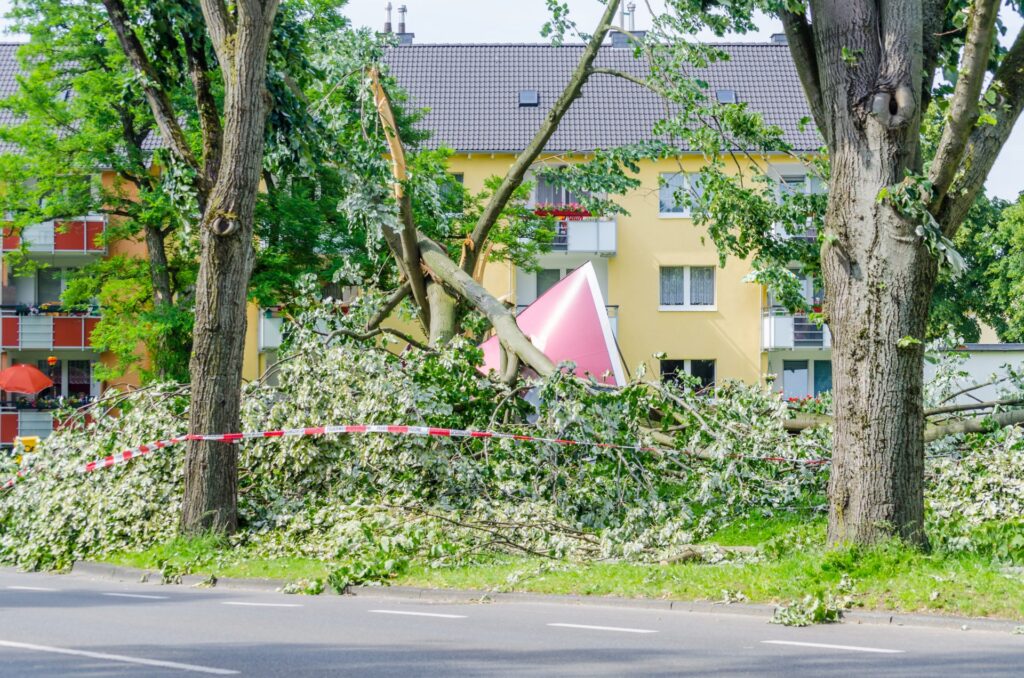What Can Happen After a Severe Weather Event?
It’s storm season! After severe weather events in Texas, if you believe your property insurance company did not pay you enough to cover your damages or if your claim was denied, you have options. If you have been paying your premiums for insurance and your claim was denied, delayed, or underpaid, would you be against scheduling a free claim evaluation with a Texas storm damage lawyer?
Storm-related property damage happens frequently in our state. Eighty-one hurricanes, tropical storms, and subtropical storms have been responsible for serious damage to Texas properties since 1980. One of these storms makes landfall in Texas about three times in every four years. Texas also experiences more hail storms than any other state in the country. Because of Texas’ extreme weather, most people will have to go through the claims process with their insurance company at some point.
What measures can you take if your damage claim is unfairly denied or if your homeowners insurance company fails to act in good faith? What are your legal rights when it comes to challenging your homeowners insurance company? Keep reading for the answers you may need.
If your damage claim has been rejected, delayed, or undervalued, and if the insurance company is not acting in good faith, you need to be advised by a storm damage attorney who challenges insurance companies successfully – an attorney who will negotiate the settlement you need.
Why Would Your Insurance Company Deny Your Claim?
Before you submit a storm damage claim, it is essential to become familiar with the specifics and details of your homeowners policy.

There are several reasons why an insurance company might deny your storm damage claim:
- Waiting too long to file your claim: Your homeowners policy requires you to notify the insurance company promptly about any property damage, and there are strict deadlines spelled out in your policy for filing and documenting storm damage claims.
- Failure to pay premiums: Failure to make premium payments on time is perhaps the leading reason why storm damage claims are denied in Texas. Be sure that you are current with your premium payments before you file a storm damage claim.
- Exclusion clauses (Damages Not Covered): Homeowners policies have exclusions. If the reason your property was damaged is excluded, your claim will be denied. A standard homeowners policy in some parts of Texas will not cover hail and wind damage, so you may need separate coverage.
How Can You Avoid a Denial of Your Claim?
A storm damage claim is difficult and time-consuming, and it is easy to make a mistake. The smart strategy is asking a Texas storm damage attorney to help you file your claim, document your damages, and negotiate a reasonable settlement with your insurance company. Be sure you:
- take steps to mitigate the damage and protect the property after storm damage happens
- know what the policy covers and excludes, and obtain additional coverage if necessary
- make timely premium payments
- document all of the damage and submit a detailed, itemized claim
- understand and meet the deadline for filing a property damage claim
If the insurance company sends a claims adjuster to inspect the damage, and you disagree with the adjuster’s estimate, tell the insurance company why, and provide documentation. The claims adjuster may simply have overlooked something, and the company may make an adjustment.
How Can a Storm Damage Lawyer Help You Get Paid?
Especially when property insurance companies receive an avalanche of storm damage claims after severe weather events, your insurance company may seek to minimize its payouts. Homeowners may expect “lowball” settlement offers, and too frequently, denials of their claims.

Whether or not a claims adjuster shows up to inspect your damage, if your claim is not handled properly by your insurance company, and if you didn’t have a storm damage attorney’s advice before filing the claim, consult a storm damage attorney immediately if your claim is denied.
Is the Insurance Company Operating in Bad Faith?
Underpaying damage claims and avoiding payouts is one way that property insurance companies boost their profits. A homeowners insurance company might insist that you are at fault for your property damages or that you have exaggerated the value and extent of those damages.
You can’t allow an insurance company to practice insurance bad faith in your own case. If the company fails to take its obligation seriously, you could have grounds for lawsuit. After a severe weather event, your homeowners insurance company may be operating in bad faith if it does not:
- promptly send an adjuster to investigate your storm damage claim
- negotiate with you in good faith
- explain why your property damage claim was rejected
- pay the damage claim – or reject it – promptly
- offer and pay the full amount that your storm damage claim is worth
How Should You Respond to Unfair Settlement Tactics from Your Insurance Company?
If you believe your homeowners insurance company is operating in bad faith, speak to a Texas storm damage attorney. Sometimes the only way to get an insurance company’s attention is to hire a lawyer. A letter alone (and the news that you have hired a lawyer) may persuade the company to honor your damage claim.
If the company is not persuaded by your attorney’s letter, filing a lawsuit is your next step. The company may then offer you a settlement – so that the court does not find in your favor and order the company to pay your lawyer’s fees along with the original amount of the claim.

If your homeowners insurance company simply refuses to work with you and your storm damage lawyer, the company is acting in bad faith. If this happens, your storm damage lawyer will take the insurance company to court and will ask the court to order the full payment of your claim.
What More Should You Know About Storm Damage Claims?
If you sustain storm-related damage to your property, a storm damage attorney will evaluate your case with no cost or obligation. If you move ahead with legal action, you’ll pay no lawyer’s fee upfront or until you are compensated by your homeowner’s insurance company.
If the insurance company acted in bad faith, the court may also order the company to pay your attorney’s fee as well as your property damage claim. Your Texas storm damage lawyer will provide you with personalized advice regarding your rights, your options, and the legal process.
Texas has a two-year deadline (statute of limitations) for filing legal claims related to storm-damaged property, but you should not wait two years. If your claim has been rejected, or if you believe the insurance company is operating in bad faith, contact a storm damage attorney at once.
















